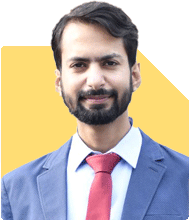My daughter has just started career at ground staff security into aviation industry,her current in hand salary is 15k ,what is the best option for her to start saving and built wealth in coming 20 years.,
Ans: First off, congratulations to your daughter on starting her career in the aviation industry! It's fantastic that she’s thinking about saving and building wealth early on. This forward-thinking approach will pay off significantly over time. Let’s explore how she can make the most of her earnings and set herself up for a bright financial future.
Setting Clear Financial Goals
Before diving into specific investment options, it’s crucial to outline clear financial goals. What does your daughter aim to achieve in the next 5, 10, and 20 years? Goals could include building an emergency fund, saving for higher education, buying a home, or creating a retirement corpus. Having well-defined goals will help in selecting the right investment options.
Establishing an Emergency Fund
The first step is to establish an emergency fund. This should cover at least 3 to 6 months of her monthly expenses. Given her current salary of Rs 15,000, she should aim to save Rs 45,000 to Rs 90,000 in a liquid fund. Liquid funds are low-risk and provide quick access to money, making them ideal for emergencies.
Starting with SIPs in Mutual Funds
Systematic Investment Plans (SIPs) are a great way to start investing with a small amount of money regularly. They allow investors to put in a fixed sum of money at regular intervals, usually monthly, into mutual funds. This approach is beneficial for young investors like your daughter for several reasons:
Benefits of SIPs
Rupee Cost Averaging: Investing a fixed amount regularly reduces the average cost per unit over time.
Disciplined Saving: SIPs instill a disciplined approach to saving and investing.
Compounding: Regular investments can grow significantly over time due to the power of compounding.
Categories of Mutual Funds for Her
Given her 20-year investment horizon, a mix of equity funds would be ideal. Equity funds offer higher returns over the long term compared to other investment options. Here’s a suggested allocation:
Large Cap Funds: These invest in large, well-established companies. They provide stability and steady growth.
Mid Cap Funds: These invest in medium-sized companies, offering higher growth potential with moderate risk.
Small Cap Funds: These focus on small companies with high growth potential but come with higher risk.
Flexi Cap Funds: These invest across market capitalizations, providing a balanced approach to investing in large, mid, and small-cap stocks.
Avoiding Index Funds and Direct Funds
While index funds and direct funds might seem attractive due to lower costs, they might not be the best fit for her. Index funds simply mimic a market index and lack the potential for higher returns that actively managed funds offer.
Actively managed funds, on the other hand, have fund managers who actively select stocks to outperform the market. This expertise can lead to better returns over the long term, despite higher costs.
Similarly, investing through regular funds via a Mutual Fund Distributor (MFD) with a Certified Financial Planner (CFP) credential provides expert advice and personalized strategies. This guidance is especially valuable for young investors navigating the complexities of financial markets.
Exploring PPF for Safe, Long-term Investment
The Public Provident Fund (PPF) is a government-backed savings scheme offering attractive interest rates and tax benefits. It has a 15-year lock-in period, making it suitable for long-term goals. Investing in PPF can provide stability and assured returns, complementing the higher-risk equity investments.
Understanding the Power of Compounding
One of the most powerful concepts in investing is compounding. By reinvesting earnings, she can earn returns on both her initial investment and the returns generated. This snowball effect can lead to substantial growth over time. The earlier she starts investing, the more she can benefit from compounding.
Diversifying Investments
Diversification is key to managing risk. By spreading investments across different asset classes and funds, she can reduce the impact of any one investment performing poorly. A balanced portfolio might include:
Equity Mutual Funds: For long-term growth.
Debt Mutual Funds: For stability and lower risk.
PPF: For assured returns and tax benefits.
Regular Monitoring and Rebalancing
Investing is not a set-and-forget activity. Regularly monitoring and rebalancing her portfolio ensures it stays aligned with her goals. Market conditions change, and so should her investment strategy. A Certified Financial Planner can help with this ongoing process.
Tax Planning
Efficient tax planning is crucial to maximize returns. She should be aware of tax-saving instruments like Equity Linked Savings Schemes (ELSS) and PPF. These not only provide good returns but also offer tax benefits under Section 80C of the Income Tax Act.
Building Financial Discipline
Encourage her to develop good financial habits. This includes budgeting, tracking expenses, and avoiding unnecessary debt. Financial discipline is the foundation of a secure financial future.
Health and Term Insurance
Insurance is an important aspect of financial planning. She should consider getting health insurance to cover medical expenses and term insurance to secure her dependents’ future. This protection ensures that her savings are not eroded by unforeseen events.
Leveraging Employee Benefits
Many employers offer benefits like Provident Fund (PF) and Employee Pension Scheme (EPS). She should take full advantage of these benefits as they provide long-term financial security. Additionally, some companies offer stock options, which can be a good investment opportunity.
Investing in Skills and Education
While financial investments are important, investing in her skills and education can lead to higher earning potential. Continuous learning and upgrading skills can open up better job opportunities and career growth, leading to higher savings and investments.
Staying Informed and Updated
The financial world is dynamic, with constant changes and new opportunities. Encourage her to stay informed about financial markets, new investment options, and economic trends. This knowledge will help her make informed decisions and adapt her strategy as needed.
Final Insights
Starting early with a well-thought-out investment plan can significantly impact her financial future. A mix of mutual funds, PPF, and disciplined saving habits will set her on the right path. Regular monitoring, tax planning, and leveraging employee benefits will further enhance her financial security. With the right guidance and a proactive approach, she can build substantial wealth over the next 20 years.
Best Regards,
K. Ramalingam, MBA, CFP
Chief Financial Planner
www.holisticinvestment.in



























